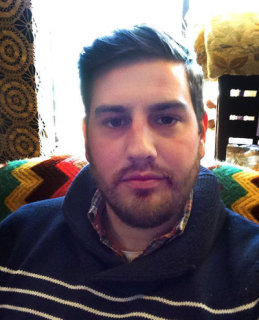Last week’s attacks in Paris have clearly sparked a discussion in newsrooms about the line between the freedom of journalists to say whatever they feel the need to say and the responsibility not to offend or harm, at least not unnecessarily.
Even that discussion has led to another one: Can you support that freedom and still take a pass on upsetting someone who might take offense at its exercise?
“In thinking about provocateurs and insulters,” David Brooks wrote on Thursday, “we want to maintain standards of civility and respect while at the same time allowing room for those creative and challenging folks who are uninhibited by good manners and taste.”
 Let’s throw another unrelated story into this discussion; last week’s NPR story about a pastor who is attracted to men, but married a woman because of the dictates of his religion.
Let’s throw another unrelated story into this discussion; last week’s NPR story about a pastor who is attracted to men, but married a woman because of the dictates of his religion.
“I think we all have part of our desires that we choose not to act on, right?” Allen Edwards told NPR. “So for me, it’s not just that the religion was important to me, but communion with a God who loves me, who accepts me right where I am.”
Clearly, Pastor Edwards’ story reinforces the notion held by many that God does not embrace homosexuals, certainly a debatable point.
“I’m concerned about the message Mr. Edwards is sending to young homosexuals in his congregation,” a Presbyterian listener wrote on the online version of the story. “Homosexuality is not a choice – you don’t wake up one morning and choose which sex you will be attracted to. Perhaps Mr. Edwards should make the distinction that he is bisexual. Also, it should have been mentioned (because Mr. Edwards is a Presbyterian pastor), that the largest Presbyterian denomination (PC-USA) accepts gay pastors and voted last summer that marriages between same-sex couples can be performed in our churches (in states where it is legal).”
But what is the journalist’s responsibility in telling the story? Should it be told at all?
On this week’s Weekend Edition Sunday, another man wishes NPR hadn’t run the story.
It’s Dexter Edwards, Pastor Edwards’ brother. He’s gay.
“I was kind of frustrated that NPR made this a news story because I feel how detrimental it can be to other people,” he says. “I understand that it’s an opinion and it’s a lifestyle choice, and that everyone does and can choose what they want to do, but I would never want this to harm anyone.”
The Society of Professional Journalists’ code of ethics requires journalists to “support the open and civil exchange of views, even views they find repugnant.” It further requires them to minimize harm.
But how do we assess what the harm is and to extent harm must be tolerated in the telling of a story?
